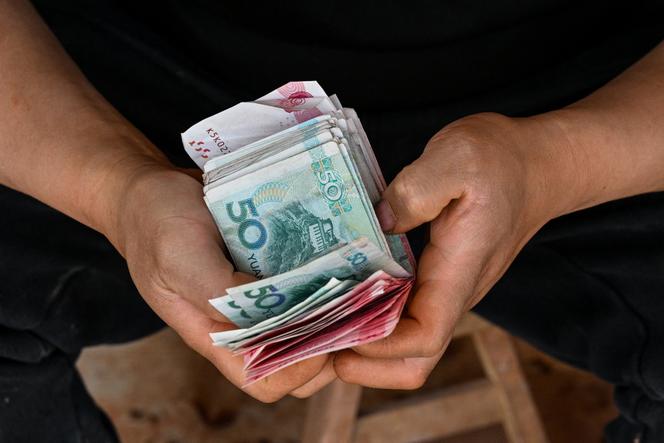


You have to get up early if you have any hope of spotting them, and you must stay alert to identify them in the aisles. At the Xinmin fresh produce and vegetable market, located in the heart of Beijing just North of the 2nd Ring Road, the oldest customers are now the last to keep using coins and banknotes, which are vanishing from the rest of Chinese society.
The world's second-largest economy has undergone rapid digitization, and all daily transactions – from supermarkets to cafés, taxis to public transportation – are now made with one of two apps that have become vital to life in China: WeChat or Alipay. Their green and blue logos are displayed at every payment point, and many businesses no longer even keep a traditional cash register, but instead simply scan the QR code presented by the customer. Many taxis refuse cash payments, as do many neighborhood grocery stores, which often do not have the change to give back in any case.
Ma Dian, a fruit and vegetable vendor from Hubei who works at this covered market in the capital, observed that the trend surged abruptly over the past decade, becoming what he calls a "radical change." "I still accept cash only to help the very elderly. Below the age of 80, almost everyone has switched; above that, it's much harder to adapt," he said while promoting his Dalian blueberries.
You have 76.44% of this article left to read. The rest is for subscribers only.
